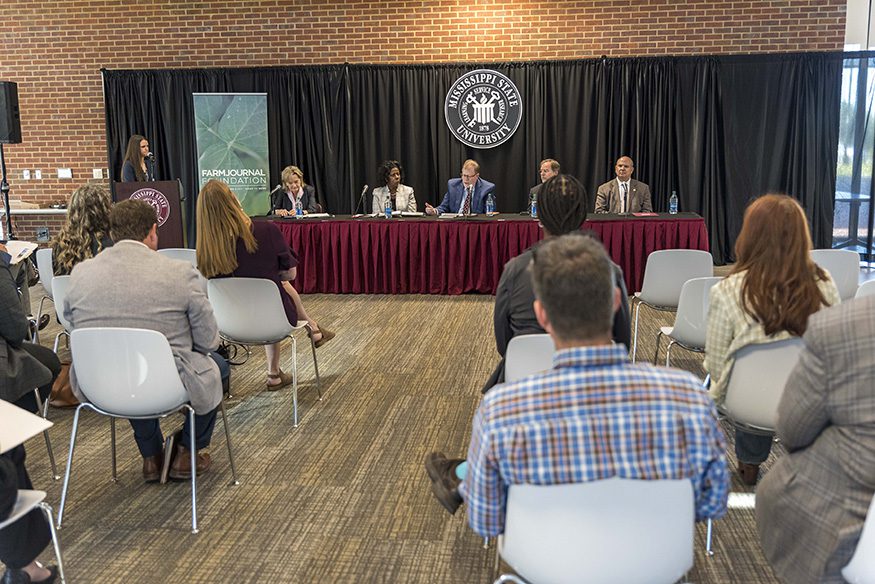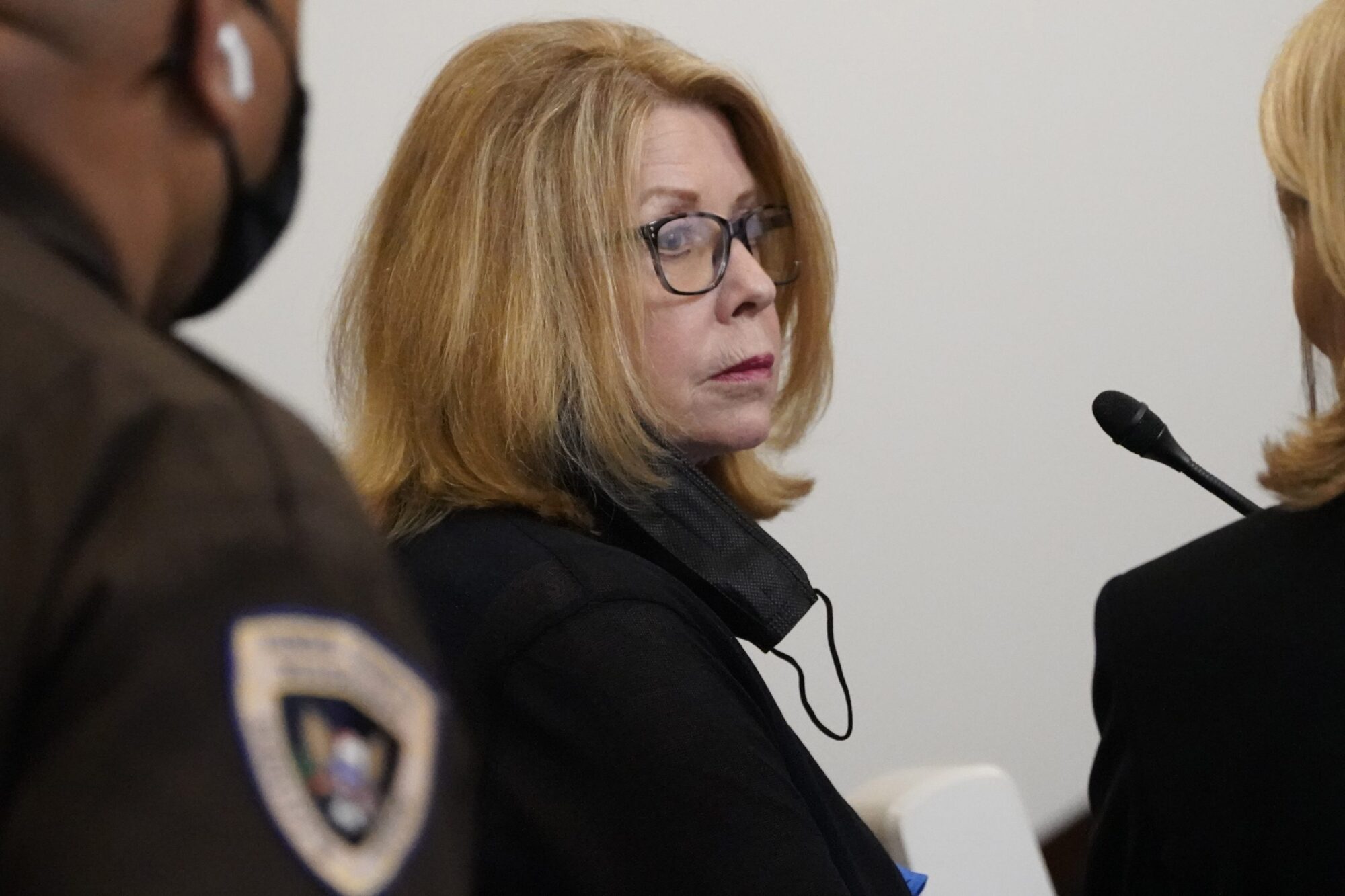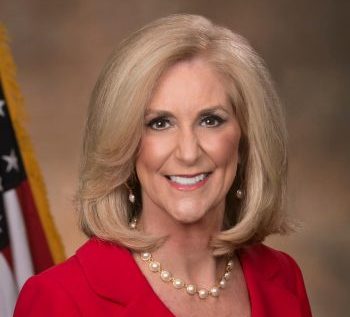
Participants in a recent panel focused on innovations in agriculture included moderator Kelsey Barnes, director of government affairs at Farm Journal Foundation; U.S. Sen. Cindy Hyde-Smith; Margaret Khaitsa, MSU professor of veterinary epidemiology; Keith Coble, MSU Division of Agriculture, Forestry and Veterinary Medicine vice president; Mark Leggett, Mississippi Poultry Association president; and Mike McCormick, Mississippi Farm Bureau president. (Photo by Kevin Hudson)
Senator Hyde-Smith among participants in a panel focused on innovations in agriculture.
On Monday, U.S. Sen. Cindy Hyde-Smith (R-MS) met with agricultural scientists at Mississippi State University (MSU) and industry leaders to discuss how public support for agricultural research and development can help alleviate global hunger.
Participants on the panel included Senator Hyde-Smith; Keith Coble, Vice President of the Division of Agriculture, Forestry, and Veterinary Medicine at Mississippi State University; Mike McCormick, President of Mississippi Farm Bureau; Dr. Margaret Khaitsa, Professor of Veterinary Epidemiology at the College of Veterinary Medicine at Mississippi State University; and Mark Leggett, President of Mississippi Poultry Association. Kelsey Barnes, Director of Government Affairs at Farm Journal Foundation served as the moderator.
The event was organized and co-hosted by MSU and Farm Journal Foundation and highlighted how innovations can strengthen food supply chains, prevent animal disease outbreaks, and enable farmers to increase production with fewer resources.
A press release from MSU noted the global food system is under significant pressure from challenges including the conflict in Ukraine, the COVID-19 pandemic, and extreme weather events.
“However, agricultural R&D can help make food systems more resilient, driving innovations to increase crop yields, preserve natural resources, and enable farmers to adapt to different weather patterns,” the release said. “Investing in agricultural R&D is increasingly important, as global hunger is at record levels, and food insecurity remains a serious challenge nationally and in Mississippi. High food costs are also putting a strain on consumers both in the United States and around the world.”
Senator Hyde-Smith, who sits on the Senate Agriculture Committee, said it is more important than ever to come up with real solutions to avoid global food crises, particularly as our nation and the world continue to feel the effects of the crisis in Ukraine and a global pandemic.
“As challenges increase, so too must our investments in agriculture research and development. Mississippi State University and other stakeholders in our state already contribute to finding solutions to these problems, and we can do more,” Hyde-Smith said. “I appreciate the Farm Journal Foundation and Mississippi State for facilitating this pertinent and valuable dialogue.”
According to the Mississippi Department of Agriculture and Commerce, agriculture is Mississippi’s most important industry, employing approximately 17% of the state’s workforce either directly or indirectly.
Agriculture in Mississippi is a $8.33 billion industry with approximately 34,700 farms in the state covering 10.4 million acres. The average size farm is composed of 300 acres.
Keith Coble, Vice President of the Division of Agriculture, Forestry, and Veterinary Medicine at MSU, said scientists at Mississippi State are finding solutions to the challenges farmers face to enhance crop production, protect aquaculture and livestock, and boost water resources here at home and in communities around the globe.
“We are thankful for Senator Hyde-Smith’s attention to this important topic and appreciate the opportunity to discuss agriculture research and extension funding,” Coble said. “By working together, we are ensuring that global food security is a priority for years to come.”
Agricultural research has one of the highest returns of any public investment, returning on average $20 in benefits for every $1 invested.
According to a recent report commissioned by Farm Journal Foundation and the American Farm Bureau Federation, China and Brazil now outspend the United States on public funding for agricultural research, threatening America’s competitive advantage in agriculture.
Kelsey Barnes, Director of Government Affairs at Farm Journal Foundation, said agriculture research and development create the tools needed for smallholder farmers to feed their local communities, so they are not dependent on U.S. food aid.
“It also makes our U.S. food system more resilient, creates opportunities for trade, and ensures the world is more food secure,” Barnes said. “As the global food security crisis increases migration and conflict, it is in the best interest of U.S. national security to make long-term agriculture development investments to prevent future food insecurities and inflation.”











